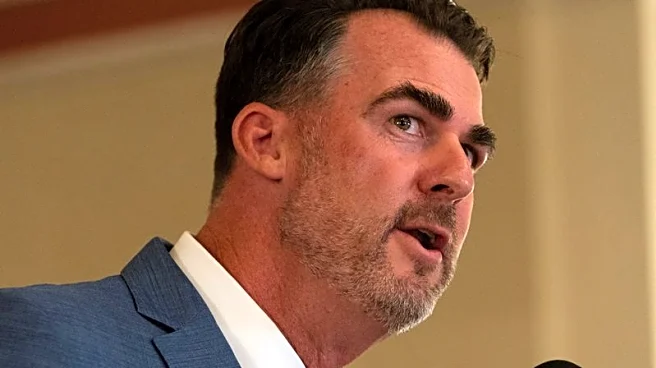What is the story about?
What's Happening?
S&P Global Commodity Insights has released a new analysis indicating a 50% likelihood that global temperatures could rise by 2.3°C by 2040 compared to pre-industrial levels. This projection highlights significant socioeconomic consequences, including vast areas becoming uninhabitable for humans. The report emphasizes the urgent need for increased investment in climate adaptation to enhance resilience against physical climate risks such as heatwaves and droughts. Current adaptation finance is insufficient, with a gap of at least $187 billion annually needed through 2030 to address these risks effectively. The analysis also notes that current efforts to mitigate greenhouse gas emissions have minimal impact on immediate physical climate risks.
Why It's Important?
The potential rise in global temperatures poses severe threats to public health and economic productivity, with industries such as food and agriculture, built environment, and insurance being most at risk. The World Economic Forum estimates that climate-driven health impacts could lead to a loss of over $1.5 trillion in economic output by 2025. This underscores the necessity for businesses to integrate climate resilience into their operations to safeguard worker health and ensure long-term sustainability. Early investment in climate adaptation can not only mitigate risks but also unlock new opportunities for innovation and growth, aligning with emerging market needs.
What's Next?
The report's release coincides with the UN General Assembly and Climate Action Week NYC, aiming to inform businesses, investors, and policymakers about adaptation-related risks and opportunities. National governments are urged to increase spending on transformative projects and create a more enabling environment for adaptation financing. The focus is on unlocking additional private and philanthropic finance to bridge the adaptation finance gap. As probabilistic analysis matures, it is expected to provide more certainty in investment returns, encouraging further investment in climate resilience.
Beyond the Headlines
The report highlights the ethical and economic imperative of addressing climate change proactively. Delaying adaptation measures increases risks to human health and productivity, raising the costs of future adaptation. Companies that prioritize climate health adaptation can benefit from enhanced business continuity and resilience, while also contributing to global efforts to combat climate change. This approach aligns with broader sustainability goals and can drive positive environmental and social impacts.


















